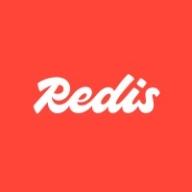

Redis and ClickHouse compete in the data storage and processing category. Redis appears to have the upper hand in real-time applications due to its in-memory speed and ease of deployment, while ClickHouse excels in handling large datasets with efficient query performance.
Features: Redis is known for its in-memory storage, enabling swift data retrieval and optimal performance in real-time applications such as gaming and analytics. Its flexibility is enhanced by diverse data structures and robust persistence options. Features like master-slave replication and clustering ensure high availability and scalability. ClickHouse stands out with its columnar storage, delivering rapid query performance beneficial for large datasets. It is particularly effective for real-time analytics, offering strong compression capabilities and cost-effective scalability for big data.
Room for Improvement: Redis requires better documentation and more resources for newcomers. Improvements in cluster management and security features for enterprise use are needed. ClickHouse faces integration challenges and needs improved documentation, especially for SQL syntax and third-party tools. Its cluster deployment can be complex, and it struggles with transactional data support.
Ease of Deployment and Customer Service: Redis is typically deployed in the public cloud, known for easy setup on platforms like AWS, but customer support quality varies. ClickHouse is often used on-premises or in hybrid setups, requiring more technical expertise for deployment, though it generally has good support despite less comprehensive documentation.
Pricing and ROI: Redis, an open-source solution, is cost-effective but RAM-based storage can increase costs. It provides strong ROI through performance boosts and developer productivity. ClickHouse, also open-source, avoids licensing issues and offers competitively priced cloud services. On-premises deployments are economical, and it gives significant ROI through efficient data processing for large-scale analytics.
I estimate we save four to five hours per person per week due to this efficiency, translating to around 20 to 25 hours saved monthly for each individual.
We could reduce the amount of employees needed when we migrated to ClickHouse Cloud.
With ClickHouse, we didn't need to spend much on resources, cutting costs by around 25 to 30%.
If more timely support could be provided during critical issues, situations could have been resolved much more quickly, saving considerable time.
When we faced any challenges, the ClickHouse support team provided helpful resolutions.
We utilize AVN ClickHouse, which is effectively managed by AVN, providing bug fixes and developing new functionalities along with architecture reviews.
The vertical scalability is impressive, with high insert throughput, allowing millions of rows per second with low latency.
ClickHouse is highly scalable.
The scalability of ClickHouse is great.
Data migration and changes to application-side configurations are challenging due to the lack of automatic migration tools in a non-clustered legacy system.
I can confidently say that it is very consistent and stable even when handling high volume loads and real-time streaming analytics across financial and operational domains.
ClickHouse handles large volumes of data efficiently.
ClickHouse is stable, as we did not encounter stability issues in production.
Redis is fairly stable.
Another challenge is the lack of robust support for transactional databases, which limits its use as a primary database.
ClickHouse should be able to import data from other types of sources like Parquet and Iceberg tables and all the new upcoming data formats.
My experience with ClickHouse's documentation is that it needs improvement; I think it can be made more beginner-friendly, while the community support is really good.
Data persistence and recovery face issues with compatibility across major versions, making upgrades possible but downgrades not active.
My experience with pricing, setup cost, and licensing indicates that it is very expensive—ClickHouse is the most expensive option.
ClickHouse is open source with no hidden fees, offering cost-effective data management.
I found ClickHouse's pricing to be efficient in comparison to other services such as Redshift.
Since we use an open-source version of Redis, we do not experience any setup costs or licensing expenses.
ClickHouse has reduced our storage cost and improved our 99th percentile latency by 40%.
For cost optimization, after deploying the cluster on-premises and using S3 Express, approximately 5x cost savings were achieved on data storage.
ClickHouse positively impacted our organization by absorbing the whole logging system without hassle, storing logs for six months efficiently.
It functions similarly to a foundational building block in a larger system, enabling native integration and high functionality in core data processes.
| Product | Market Share (%) |
|---|---|
| Redis | 5.6% |
| ClickHouse | 4.9% |
| Other | 89.5% |

| Company Size | Count |
|---|---|
| Small Business | 13 |
| Midsize Enterprise | 4 |
| Large Enterprise | 8 |
| Company Size | Count |
|---|---|
| Small Business | 11 |
| Midsize Enterprise | 3 |
| Large Enterprise | 9 |
ClickHouse is renowned for its speed, scalability, and real-time query performance. Its compatibility with SQL standards enhances flexibility while enabling integration with popular tools.
ClickHouse leverages a column-based architecture for efficient data compression and real-time analytics. It seamlessly integrates with tools like Kafka and Tableau and is effective in handling large datasets due to its cost-efficient aggregation capabilities. With robust data deduplication and strong community backing, users can access comprehensive documentation and up-to-date functionality. However, improvements in third-party integration, cloud deployment, and handling of SQL syntax differences are noted, impacting ease-of-use and migration from other databases.
What features make ClickHouse outstanding?
What benefits should users consider?
ClickHouse is deployed in sectors like telecommunications for passive monitoring and is beneficial for data analytics, logging Clickstream data, and as an ETL engine. Organizations harness it for machine learning applications when combined with GPT. With the ability to be installed independently, it's an attractive option for avoiding cloud service costs.
Redis offers high-speed, in-memory storage, renowned for real-time performance. It supports quick data retrieval and is used commonly in applications like analytics and gaming.
Renowned for real-time performance, Redis delivers high-speed in-memory storage, making it a favorite for applications needing quick data retrieval. Its diverse data structures and caching capabilities support a broad array of use cases, including analytics and gaming. Redis ensures robust scalability with master-slave replication and clustering, while its publish/subscribe pattern renders it reliable for event-driven applications. The solution integrates smoothly with existing systems, minimizing performance tuning needs. Although documentation on scalability and security could be improved, Redis remains cost-effective and stable, commonly utilized in cloud environments. Enhancing integration with cloud services like AWS and Google Cloud and refining GUI may improve usability.
What are the key features of Redis?Redis finds application across industries for tasks like caching to improve application performance and speed, minimizing database load. It enables real-time processing for session storage, push notifications, and analytics. As a messaging platform, Redis handles high traffic and supports replication and clustering for cross-platform scalability.
We monitor all Vector Databases reviews to prevent fraudulent reviews and keep review quality high. We do not post reviews by company employees or direct competitors. We validate each review for authenticity via cross-reference with LinkedIn, and personal follow-up with the reviewer when necessary.